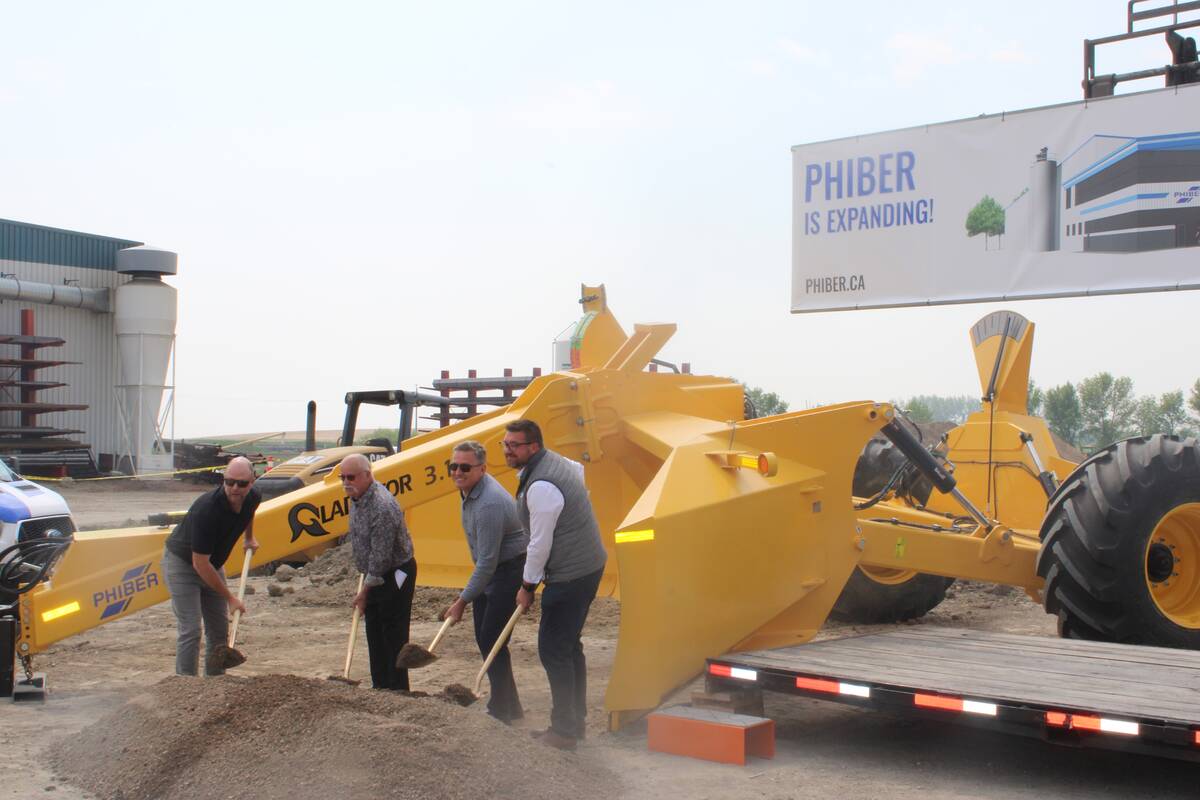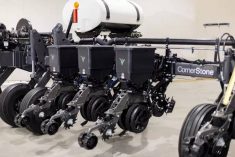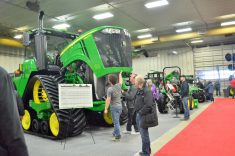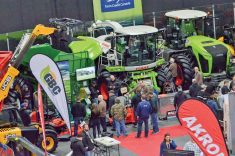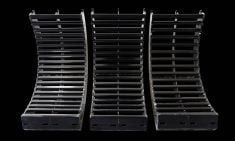A community of less than 500 people with few municipal services isn’t exactly where you’d expect to find a significant manufacturing facility, one that sells its products domestically and through two foreign subsidiaries on two continents.
However, in small Crystal City, Man., that is exactly where PhiBer Manufacturing is intent on growing its manufacturing footprint. It’s also where the company was founded in 1996.
WHY IT MATTERS: PhiBer’s expansion comes as makers of Canadian agricultural equipment are under pressure from U.S. tariffs.
Read Also
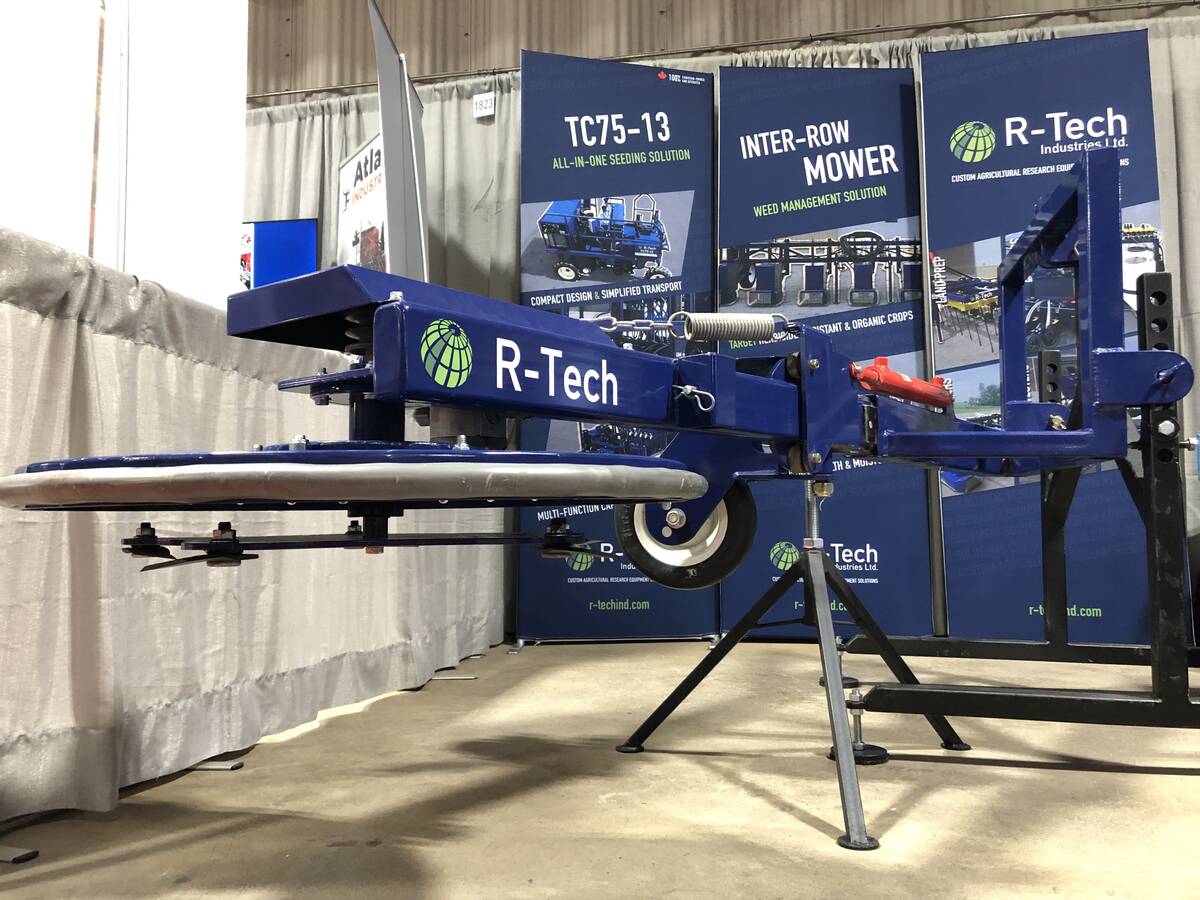
R-Tech fence mower wins for farm safety innovation at Ag Days
R-Tech fence mower wins 2026 Ag Days Innovation Showcase farm safety category for labour saving fenceline mower
PhiBer management held an official sod turning ceremony on June 5 in front of a crowd of employees, community members and others from the ag industry and government.
“We’ve been going through extreme growth in the last number of years,” says owner and chief executive officer Derek Friesen.
“I think our four-year average is 48 per cent growth year over year.”
To help the company keep up with fast growing demand for its products, construction has started on a massive 60,000 square foot facility that will house additional manufacturing space, including state-of-the-art plastics manufacturing equipment.
“The new building is a steel storage, metal fabrication and welding centres, as well we’re going to be bringing in some large (plastic) moulding equipment,” says Friesen.
“It’s the ability to make our own plastic tanks.
“There are only two (plastic moulding) machines in Canada that are big enough to do what we need. Right now, it’s all being done in the States, and we want to bring it back to Canada. So the largest machine in Canada will be here. There is a lot of opportunity for a lot of different things.”
The equipment will allow PhiBer to produce tanks up to 5,000 gallons for its Dash sprayer tender trailers and even some larger on-site storage tanks.

The Dash line is fast becoming the core product PhiBer now produces and sells into Canada, the United States and Australia.
PhiBer will also have the opportunity to be a plastics supplier to other manufacturers who require tanks.
In addition to the Dash trailers, the company produces a line of hay tools that it supplies to large original equipment manufacturers such as Claas and Agco, which are sold under their brand names. It also builds earth moving equipment.
Keeping PhiBer rural
Friesen has decided not to move the company to a larger centre with better services and a larger population to draw employees from. Instead, he’s committed to keeping his company in Crystal City.
However, being located in a small rural community is not without its drawbacks. The community isn’t serviced by natural gas and doesn’t have a municipal water system.
“There are some handicaps being here,” says Friesen.
“We don’t have water for fire suppression or natural gas. But your people are really your core base. We’re pretty invested in the community, and the people have been great to us.”
As well, Friesen says finding good staff hasn’t been one of the firm’s problems.
“That’s one thing we’ve been really fortunate with. A lot of people struggle finding staff, we have not. We’re currently just under 90. We’ll be adding another 80 with this new building.”
To help employees develop the skills the company needs for its production, PhiBer conducts much of its own training.
“We do a ton of training here,” Friesen says.
“That’s one of the things we’ve done in this community. We’ve developed programs to bring people in. There have been a couple of (government) programs we’ve utilized as much as we can.”
As part of its support for the community, PhiBer is giving the town access to the water system it’s creating for fire suppression, which enhances the municipal fire protection, too.
Behind the official ground breaking ceremony, heavy equipment and people were already working on initial foundation and floor work for the new building.
Friesen says the new building is on the fast track for occupancy, allowing the company to quickly gear up to meet the growing demand for its equipment.
“We’re hoping to be in close to Christmas. I’d expect a year from now everything will be going at capacity.”


